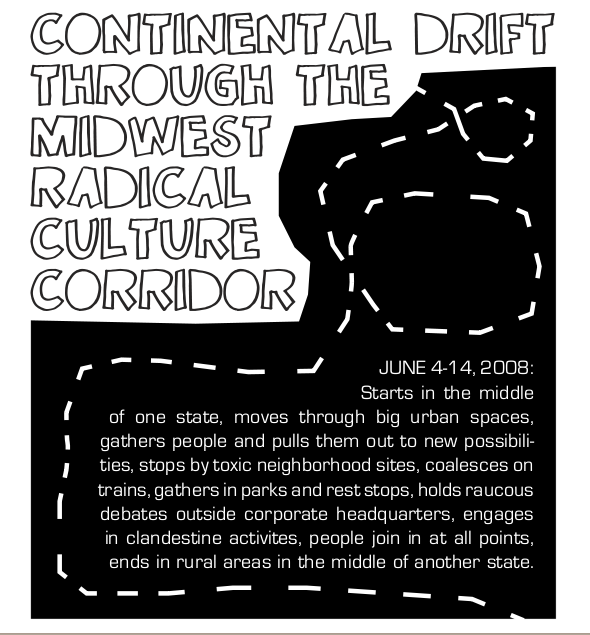From June 4 to 14, 2008, a group of people traveled through Illinois and Wisconsin in search of a Radical Midwest. Starting in Urbana, Illinois and winding our way through Chicago, Milwaukee, rural Wisconsin, and Madison, we visited places where alternate pasts and futures sprout up and grow roots in the stress-fractures of a society built on violence, exploitation, and environmental destruction. We visited community groups fighting power companies for decades of environmental racism; learned about preserving Underground Railroad sites in Chicago; watched a 35-year old film about revolutionary black street gangs with the man who wrote it; cleaned a flood-damaged bookstore; and passed the time on many, many farms.
The trip was called Continental Drift and extended the seminars of that name organized by Brian Holmes, Claire Pentecost, and the people at 16 Beaver Group. The name proposes a radical geography that thinks place, culture, and economics simultaneously and contends that neoliberal capitalism and American militarism—as well as the international social movements that counter them — are radically reshaping the world on scales from the interpersonal to the geopolitical. The Midwest gathering doubled this sense of the word “drift.” Through the mobile exploration of the geographies of capital and resistance in a particular place, the seminar also became a derive, favored as an affective, embodied research tool by the Situationists of fifty years ago. In contrast to earlier seminars, this Drift unfolded over ten days, 725 miles, and several rainy nights spent in tents, fostering a level of familiarity, even intimacy among the travelers and those we visited.
 click for full size
click for full size
(excerpted from the introduction to A Call to Farms)
